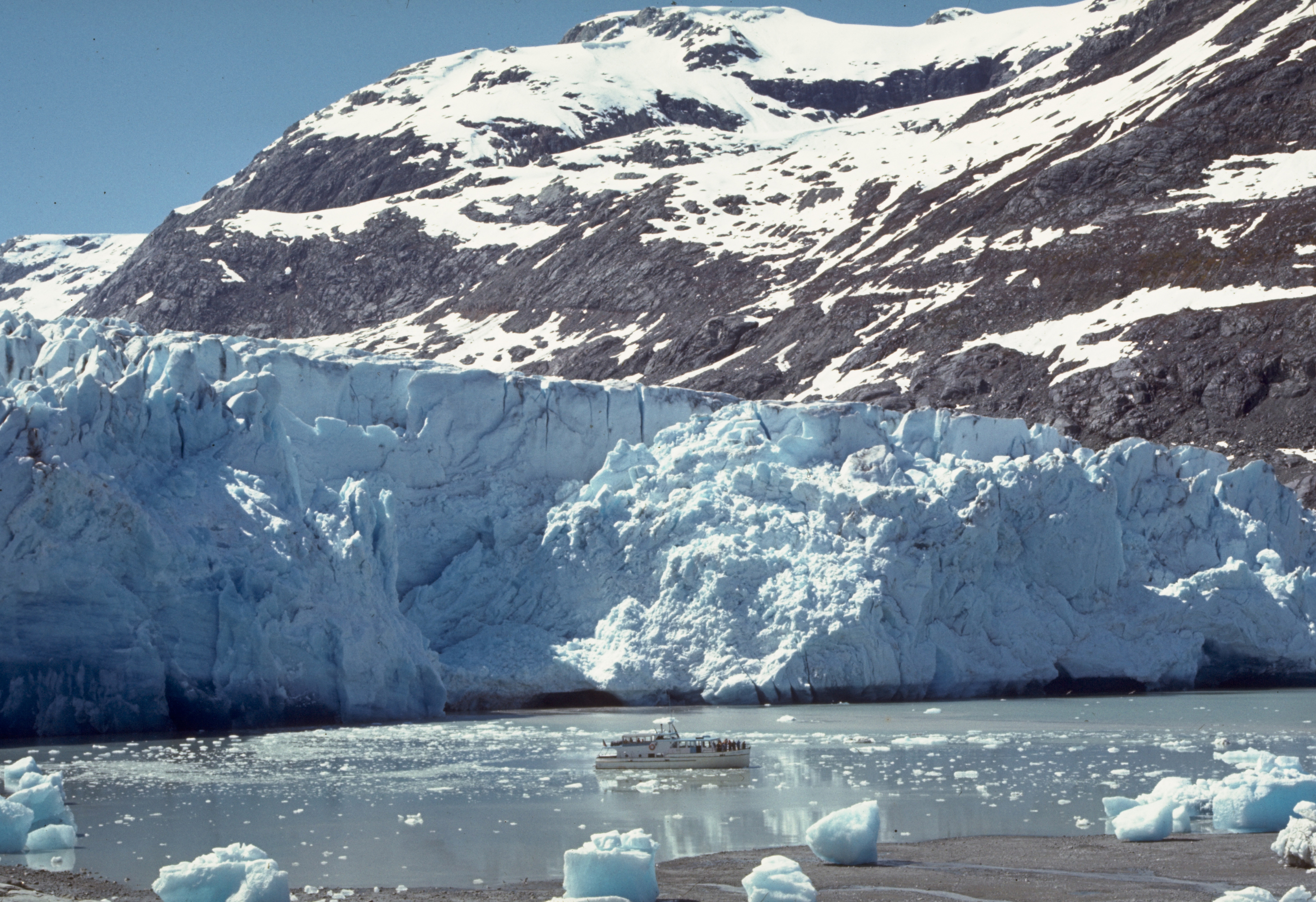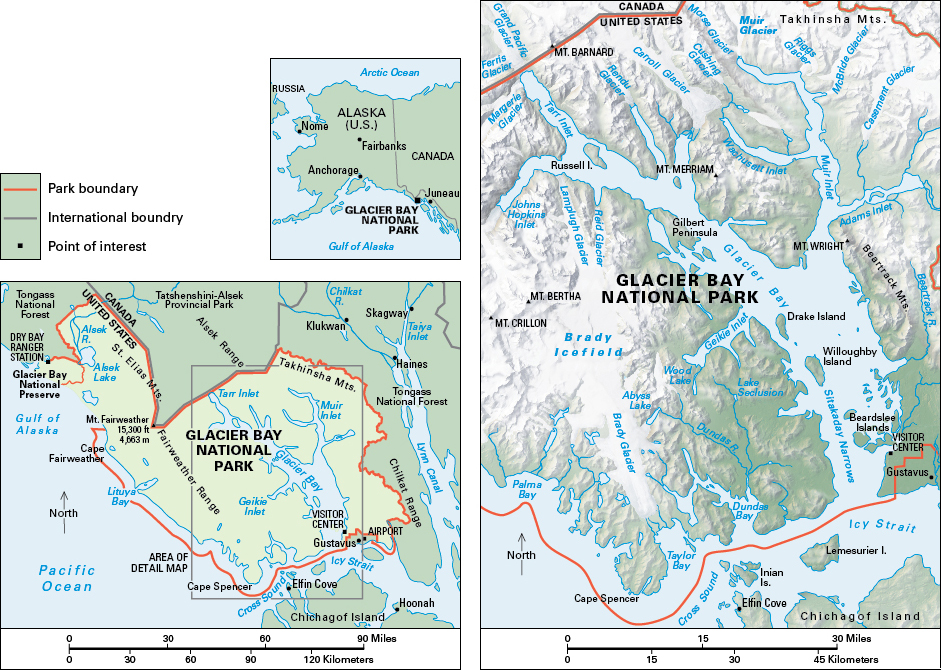Glacier Bay National Park lies in southeastern Alaska, about 100 miles (160 kilometers) west of Juneau. Hundreds of thousands of people visit the park each year. As recently as 200 years ago, the park was entirely covered by glacial ice. The park’s glaciers have been retreating rapidly, uncovering new land and sea areas. Visitors can see whales in offshore waters and watch icebergs break from glaciers and fall into the water. Wildlife of the park includes brown and black bears, moose, mountain goats, wolves, and many species of birds. Waters near the park’s shoreline support sea lions, sea otters, seals, and many kinds of fish.


Glacier Bay was little known before the American naturalist and explorer John Muir visited in 1879. Muir returned several times to study the area’s glaciers. Muir Glacier, one of the park’s largest ice forms, was named for him. The area was declared a national monument in 1925 and became a national park in 1980. For the area of Glacier Bay National Park, see National Park System (table: National parks) .
